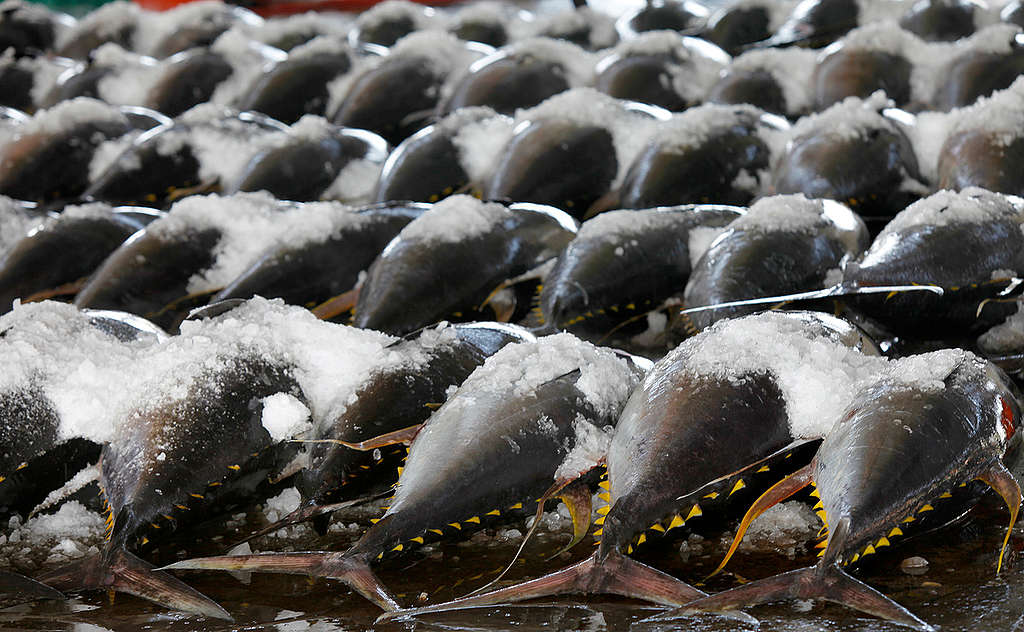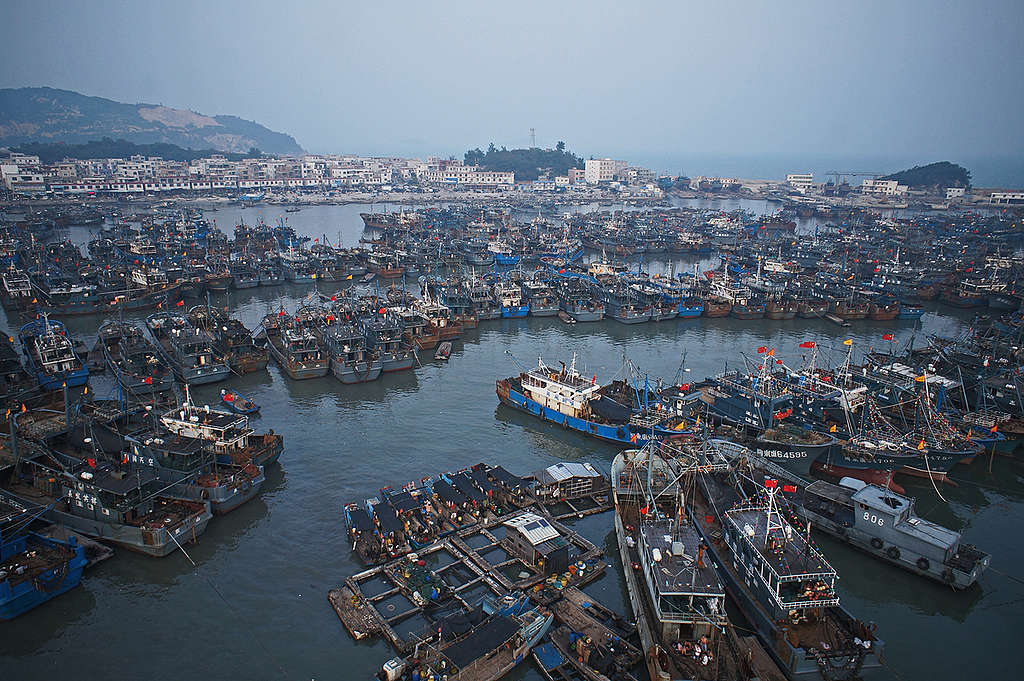China’s rampant overfishing is threatening its most ancient traditions.
That might seem like a bizarre blog title.
But to any Chinese speaker it would make perfect sense. The word for fish is a homonym (two words which sound the same, but have different meanings) for the word for surplus, implying wealth and abundance. Thus, the phrase ‘Year in year out, let there be surplus’ (年年有余) is embodied every Lunar New Year by the eating of fish, an important tradition for Chinese communities around the world.

Greenpeace supporters in Taiwan use their bodies to spell out the phrase in Chinese characters.
But the chance homonym should come as a poignant reminder to us. In China and the world’s oceans right now, the once seeming surplus of fish is fast disappearing. Overfishing has led seas to be depleted and a recent report by UN even predicted that by 2048 most of the world’s fish species will be extinct.

Fishing communities pepper China’s long eastern and southern coastline. For generations they relied on and enjoyed the bounties of the sea. But these bounties were never inexhaustible. With the arrival of modern, commercial fishing in the 1970s, which uses massive nets to rake in everything the ship finds, stocks of fish have become worryingly depleted. As we move into 2016, the year of the monkey, forty years of unsustainable and under-regulated domestic fishing industry in China’s seas) have lead to an overexploited stock.
Fishermen along China’s coast, like Ji Yuanpi, have seen the change firsthand. To them, the ancient idiom has lost its meaning. The symbolism of the lunar new year fish dinner a reminder of a once sustainable system, rather than a portend of surplus for generations to come.
Overfishing in China’s seas has also seen companies exploring more distant waters in search for new areas of abundance. With a total of, 194,240 motorized marine fishing vessels in operation, China is now the biggest fishing power in the world, almost 4 times larger than the EU, 6 larger than Japan and 11 times larger than Korea.
Moreover, last year a Greenpeace investigation found that this enormous fleet has been acting far from responsibly, and sometimes illegally. Lack of effective enforcement to protect endangered fish stocks is a major problem in the global fishing industry.

Overfishing is a dangerous trend across the world. 63% of global fish stocks are now considered overfished. And yet fishing fleets continue to head blindly out to new waters in search of new stocks to plunder.
Across the world, this unsustainable approach to fishing is resulting in profound and possibly permanent damages in our ocean ecosystems. It is breaking the healthy balance of species, disrupting the food chain, and causing the rapid disappearance of top predator fishes.
As Ji Yuanpi welcomes in the year of the monkey on the shores of the Beihai Sea, fishermen across the world also mourn for the damage that is being done to their once healthy and sustainable seas.
Sustainable engagement with the oceans is not just a thing of the past, however. With better-enforced regulations and conscientious consumption, sustainability could once again return to the seas, and the fish – surplus homonym could have its true meaning returned.
Yang Yi is an Oceans campaigner for Greenpeace East Asia



